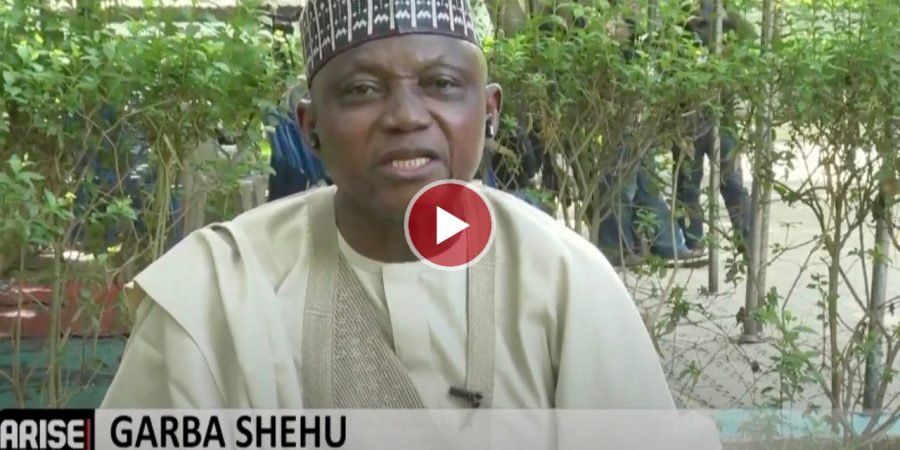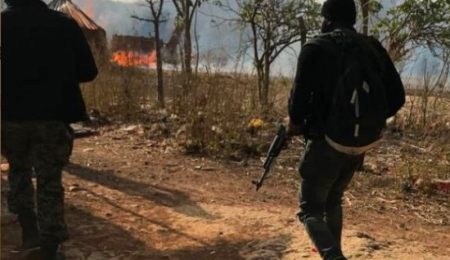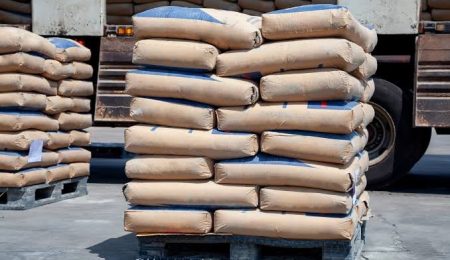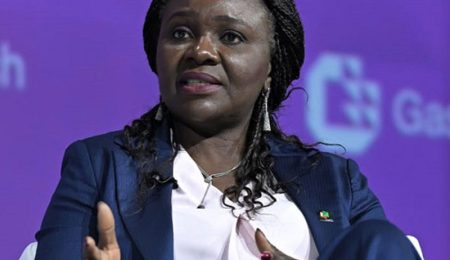Senior Special Assistant on Media and Publicity to former President Muhammadu Buhari, Garba Shehu, has described the late leader as an incorruptible, humble, and deeply principled man whose legacy was shaped by personal simplicity and a relentless focus on public service.
Speaking during an interview with Arise News on Tuesday,following Buhari’s death, Shehu reflected on his personal relationship with the late president, the shock surrounding his passing, and the preparations for his burial in Daura.
“Thank you for your kind words, Rufai,” Shehu began. “And to say that, you know, we are here, and they were over there in London. The information we kept getting from them was that the worst was behind him. And he was in a recovery mode. He was getting better with each day. Until three days to the event, we never knew fully that he was not going to be part of us because they kept saying it was up to the doctor. If the doctor says he can travel, he will come. So for us to just be hit by this sad news, it is really devastating.”
Shehu had recently launched a book in Buhari’s honour, and the late president had been actively involved in the process. “The book launch came. He had been fully briefed about it. Extensive discussion, I was told, over it. And I had briefed him at least two times on the matter. And he kept saying, get on with it. Go on with your plans. And as you said, it turned out to be a big, major colloquium on Buhari and what he did for the country, his own life and all of that. Very sad indeed.”
Speaking from Daura, where the burial is scheduled to take place, Shehu described the sombre atmosphere and ongoing preparations. “Let me say that from where we are now, we are more like onlookers because all of the plans are in the hands of the state government and the government of the federation. From what we are seeing, you see the compound is increasingly being populated by a large section there for women who have been reciting the holy Koran. Behind me there, the grave diggers are doing their work. The governor has indicated that the body will be buried within his own compound here in Daura. Security people all over the place are taking their places. Readiness, of course, to receive the important visitors that we are expecting here in Daura.”
Shehu noted the presence of dignitaries arriving for the burial. “You know, in terms of accommodation for the VIPs who came the previous day, they are mostly being kept in Katsina, the state capital, which is about 40-50 minutes from Daura. So I’m here in Daura. I’m not keeping in touch with what is happening there, but yes, Vice President Osinbajo, many of the key leaders of the previous administration, I expected they have confirmed their own presence. We’re expecting them here.”
Reflecting on his final conversations with Buhari, Shehu said, “My last conversation with him was in London when I took a printed copy of the book that we launched. He was aware that I was writing. When the prototype was ready, he took it in Kaduna before he travelled and wanted to keep it. I said, no, you need to see the final copy which I will bring to you. He had already left for London when the book was out. So when I went to him, he took it and he said he was going to read it and assure that he would be part of the event.”
He continued: “As it is now, he certainly could not because of the illness that befell him while he was on vacation and medical check out there. There’s a moment of worry from my own personal point of view. I was one of the rarest individuals to lead or to participate, to be in politics in this country and find themselves in leadership position. He was incorruptible. Anything that has the smell of corruption, he detests.”
“The thing about him, the life he led was a very simple one. You ate with him on his dining table. What do they bring to the table? The kind of thing that some of the low people in the society would eat. He would not wear the bed in terms of clothing. No. He was focused on public service. He was not attracted by things that attract most people. He wasn’t interested in building homes. This is the compound that he had after he left the military. He has kept this house until the government of Asiwaju Bola has a duty in line with the country’s practice that they rebuilt his home in Kaduna, but essentially everything. He kept the furniture, the TV, everything.”
“Of course, sometimes someone with aides will say, no, this is not fitting up. I will change it. It happened before. He had a smaller screen there and he just came and found that my colleague had replaced that with a bigger screen. He queried him, why did you do this? His simplicity is simply something that you cannot beat.”
“We learn from him, our interactions with him all the time. Like you are going to school to learn something new from an elder, from somebody with the superior wisdom.”
On Buhari’s handling of the #EndSARS protests, Shehu explained: “End SARS would have been welcomed. Knowing Buhari, it was a grievance issue. I don’t deny that there were grievances. You could see that the government responded from the beginning with the offers, not only of a dialogue but concessions, including, for instance, the dismantling of the SARS, which generated all of the anger and the atrocities.”
“I think the problem then came when it became a law and order issue. I mean, you are there in Lagos, you saw all of the vandalism that was carried out, the attack on law enforcement and arson and murder. So at that point, no responsible government would have folded its arm to say, let it go on. I think that it was necessitated by the fact that End SARS, which had noble origins, became hijacked by elements that were subversive.”
Asked if Buhari was angry or disturbed by the protests, Shehu responded: “No leader would say that they were not disturbed when law enforcement has become a big challenge. As I said, police assets were being burnt, Lagos State government, federal government assets and all of that. And of course, the lives of innocent citizens, as was to be later established, had also been lost. So President Buhari could not have been happy with that. He wasn’t. And we hope that there is never a repeat of that incident again in this country.”
Describing Buhari’s personal side, Shehu said: “His humour, his sense of humour—you know, he never liked frozen environments. Whenever he enters a room for a meeting or conversation of any sort, he will crack jokes. He will enliven the atmosphere, and people get to laugh and enjoy his presence.”
“He liked to hear stories, he told stories, and this is what got him into trouble with the Nigerians a lot of the times, because I think Nigerians, we don’t like jokes. So when a leader jokes on any given issue, they take him seriously, and then they come after him with all of these attacks. But otherwise, President Muhammadu Buhari was a very pleasant person to be around with. You feel relaxed because the moment you come to him, he disarms you with his charm, with the humour. And then you get to discuss business with him in a very relaxed situation. But as I said, you know, a lot of the times he cracks a small joke, and then people take it seriously, and then they begin to come after him.”
On the historic moment when former President Goodluck Jonathan conceded defeat to Buhari in 2015, Shehu said: “The telephone call was between two of them. I was not in their presence when it happened. But generally we were around as a campaign team. And that period was soaked in tension. Because as you obviously would recall, there were moments when, you know, the policies were elevated and feared that things could go wrongly.”
“For instance, the disruption of the presentation of the reports at the International Conference Centre, and then the Orubebe incident and all of that. Clearly in the campaign there was a sense that something was about to happen. In fact, fears were that probably people were seeking to disrupt the process and lead to the overthrow of the democratic government in the country. Militaries would seize power and stop Buhari’s inevitable victory.”
“So therefore, when President Jonathan graciously put that call, it eased all tensions and things calmed down. And I think that single incident also, because at some point you could say that there was anger in the campaign on both sides. That thing calmed down everyone. And that I think it paved way for the decency leading to the handover that characterised the succession between the two leaders.”
On the Lekki toll gate shooting, Shehu declined to provide specifics, saying: “Please, on end, I want to be excused. I have no details. The second part, it was a sad period for the country. Losses on both parts of the law enforcement, and from the report we read, civilian people were… So therefore, I have no details other than what most Nigerians have read and seen from the investigation that was carried out by the government of Lagos State.”
Boluwatife Enome
Follow us on:



